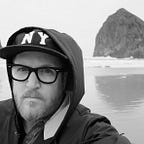Openness And (Not Enough) Progress
An update on diversity at Struck, inspired by the 3% Conference.
It’s been nearly six months since the 3% Mini Conference in Portland — and since I wrote about the impact it had on me. In that post, I mentioned that we have work to do. I’m writing today to talk about that work, to give a report (or something like that) and to hold myself and Struck accountable for increasing diversity within our organization.
First of all, let me say that I understand how shallow the following exercise may appear. I’ve debated back and forth whether this would be fruitful or if it might stir up another, completely different set of problems. The data we have compiled (and calling it “data” is very generous) addresses only gender diversity at Struck — and also addresses it only in a reductive, binary fashion. The objective of the 3% Movement and its associated events are clear: Increased diversity leads to increased creativity leads to increased profitability. So what I write here is an attempt to establish some benchmarks for Struck in terms of male/female diversity, to show the progress we’ve made in the last six months while also sharing what we’re doing to keep the needle moving.
So, here we go. As you’ll see, we’ve changed a little. But not enough. That bugs me. We’re a small agency (~50) and we’re not in constant hiring mode, so change can feel a bit slow and deliberate. That’s not an excuse, it’s just the truth about being small. No matter our size, our locations or our obstacles, we have to keep getting better.
And now, the numbers:
**New hires: 2 male, 4 female
So what does this mean? And what are we doing about it?
It means that in some areas of our agency, we’re still not doing very well. We’re improving, but there’s so much to do. We’ve started a mentoring network for women at Struck (headed up by our chief relationship officer, Pauline Ploquin). We’re engaged in local efforts in Salt Lake City and Portland (Ladies Night PDX, Illuminate Summit, Utah Wonder Women). One of our CDs, Alexandra Fuller was recently named one of the 30 Women to Watch by Utah Business. We talk about diversity (gender, race, background, etc.) with all of our hiring managers and specifically with our in-house recruiter. We evaluate wages for any potential gap.
All of these things are working. Our candidates are increasingly varied in their experience and perspective. And, with nearly 60% of our employees in a state with the 4th largest wage gap in the nation (even worse, this analysis put Oregon at #42 and Utah at #50 in its rankings of Best/Worst States for Women’s Equality… ugh), we’re doing everything we can to be an outlier—a company where opportunities are presented equally to all employees.
But there’s always more. As a group and as individuals, we need to force more opportunities to the surface. We need to commit to a more diverse workplace and hold ourselves accountable to that commitment.
There’s one particular stake I want to put in the ground. Many times, we talk about how diversity suffers because of networks (men know men, men hire men, men champion men, etc.). I believe that’s true. But I also believe that it’s something we can change. Easily.
Here’s a promise: If you are a woman or a minority — and you need a connection, if you need to “know someone who knows someone” — reach out to me. I’ll talk with you. I’ll answer your questions. I’ll make sure your book or résumé or whatever you have gets into the right hands. I suppose that I’m a someone. I absolutely know some other someones. I’ll do everything I can to connect you with them. Here’s my email address: matt[dot]anderson[at]struck[dot]com. Find me at Twitter, LinkedIn or Instagram at the end of this post. Together, we’re going to make sure that women and other minorities in the creative workforce have a strong tailwind at Struck.
Hiring for diversity means that we’ll be augmenting our talent, expanding it and exploring how we can keep finding new creative heights. We’re going to push harder for perspectives, experiences and backgrounds that differ from those we’ve already have—and that better match those of our clients and our clients’ audiences. We’re going to become more creative and more successful—by becoming more diverse.
So here it is. In writing. Warts and all. This is our vulnerability. This is our progress and our failure. This is our commitment to change.
Looking for more insights, facebooking, twittering, ramblings, musings and other thoughts? Follow our Greater Than collection.
